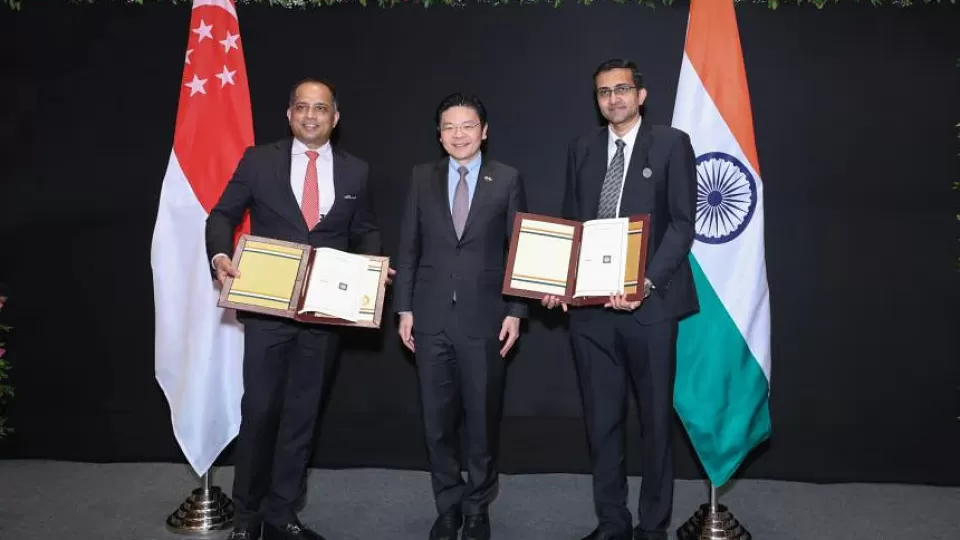September 19, 2022
NEW DELHI – Singapore and India have signed an agreement that opens a gateway for fintech firms from both countries to market-test innovative products in both markets.
Both countries will cooperate to operate a joint regulatory sandbox, with Sunday’s signing of the FinTech Cooperation Agreement between the Monetary Authority of Singapore (MAS) and the International Financial Services Centres Authority (IFSCA).
The regulators will also facilitate cooperation between Indian and Singaporean fintech companies under the agreement.
The signing was witnessed by Singapore Deputy Prime Minister Lawrence Wong, who noted that the agreement was the first of its kind for both countries.
“We hope this (agreement) will open up the space for fintech companies from both countries to experiment and pilot innovative products and services to serve both our markets,” said Mr Wong, who was in the western state of Gujarat as part of a five-day visit to India.
“I hope this will spur innovation, create new jobs and investments, and further strengthen the development of the fintech industry in both Gujarat and Singapore,” Mr Wong, who is also Finance Minister and deputy chairman of MAS, said at an official luncheon hosted by the Gujarat government.
A joint press release by MAS and IFSCA said the two regulators will leverage existing regulatory sandboxes in Singapore and Gujarat to support “innovative cross-border experiments” in both jurisdictions.
Under the agreement, the two regulators could also invite other jurisdictions to participate in a global regulatory sandbox for suitable use cases.
A regulatory sandbox allows firms to test the viability of innovative products and services with real customers under a regulator’s supervision, without the full licences normally required.
IFSCA, which is headquartered at Gujarat International Finance Tec-City (Gift City), oversees the financial sector in India’s international financial services centres (IFSC). The IFSCs are tax-holiday zones that provide financial services to customers outside India, with Gift-IFSC being the first such financial centre being developed.
Gujarat is the home state of Prime Minister Narendra Modi, who actively pushed collaboration between the state and Singapore while he was chief minister from 2001 to 2014.
Mr Wong noted that Gujarat accounts for close to 30 per cent of India’s exports to Singapore, while the island state is the second-largest investing country in the state.
He said links between Gujarat and Singapore should be seen in the “broader context of the very strong and long-lasting partnership between India and Singapore”.
Noting the 22-year relationship between India’s National Stock Exchange (NSE) and Singapore Exchange (SGX), Mr Wong highlighted the “pioneering” NSE IFSC-SGX Connect framework launched in July to allow foreign investors to trade Indian equity derivatives onshore.
“We would certainly like to see both exchanges doing more together, and we can expect cross-border operations to increase,” he said.
“Working together, our private sector and our regulators can strengthen financial connectivity between our two countries and I am sure there is a lot of potential for us to do more.”
During his visit to Gujarat, Mr Wong also met with Gujarat Chief Minister Bhupendra Patel.
Mr Wong tweeted after the meeting: “We reaffirmed our good relations and spoke about technology and the digital economy. We are also committed to exploring more new areas of partnership.”
Mr Wong on Saturday took part in the inaugural India-Singapore Ministerial Roundtable, a new mechanism between the two countries to discuss wide-ranging and newer, emerging areas of cooperation.


